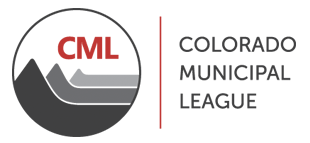High Court Rejects Doctors’ Latest Bid to Thwart Investigation of Medical Marijuana Recommendations
In This Section
By Laurel Witt, CML Staff Attorney
High Court Rejects Doctors’ Latest Bid to Thwart Investigation of Medical Marijuana Recommendations
Earlier this month, the Colorado Supreme Court blocked an attempt to expand the Open Meetings Law (OML) to include meetings of two or more persons in the staff of a public agency. A group of doctors, who had been referred to the State Medical Board due to suspicious patterns of behavior in recommending medical marijuana, sued alleging the Colorado Department of Public Health and Environment (CDPHE) violated the Colorado Open Meetings Law (OML) by having staff create and enforce a policy for medical marijuana referrals. The doctors argued the definition of state public body within OML—which mirrors the definition of local public body—includes staff members when making internal agency policies. The Colorado Supreme Court disagreed with the doctors, articulating the “absurd result” of having all state agency staff—and potentially local government staff—follow the involved OML requirements for routine conversations. Surely, the legislature did not intend such a result.
The Supreme Court also rejected the Doctor’s argument that CDPHE violated the Colorado Administrative Procedure Act (APA). The doctors claimed CDPHE’s referral policy amounted to final agency action under the APA, thus requiring CDPHE to follow the procedures outlined in the APA. The Court found that the action of creating the policy equates to an interpretive rule, where the agency may provide explanations of a word or phrase, and describe the type of factors the agency will consider in future administrative proceedings without binding the agency. Interpretive rules, unlike legislative rules which create standard with the force of law, are not subject to the APA’s requirements. Additionally, the Court found that referring the doctors to the Medical Board was not final agency action because the referrals merely began the Medical Board review and did not result in a “final” action. The Court has thus prevented the doctors’ latest bid to block state oversight for overprescribing medical marijuana, an issue since the inception of medical marijuana in 2000.
CML joined 17 state agencies amicus curiae in this case. Doe v. Colorado Dep't of Pub. Health & Env't, 2019 CO 92, ___ P.3d___ (Colo. 2019). In two companion cases decided on the same day, the Supreme Court further held that the Medical Board can issue a subpoena from the referral from CDPHE whether or not the subpoena is based on a valid referral so long as the subpoena has a lawfully authorized purpose. See Colorado Med. Bd. v. McLaughlin, 2019 CO 93, ___ P.3d___ (Colo. 2019) and Boland v. Colorado Med. Bd., 2019 CO 94, ___ P.3d___ (Colo. 2019).
Read the CML Amicus Brief Here
